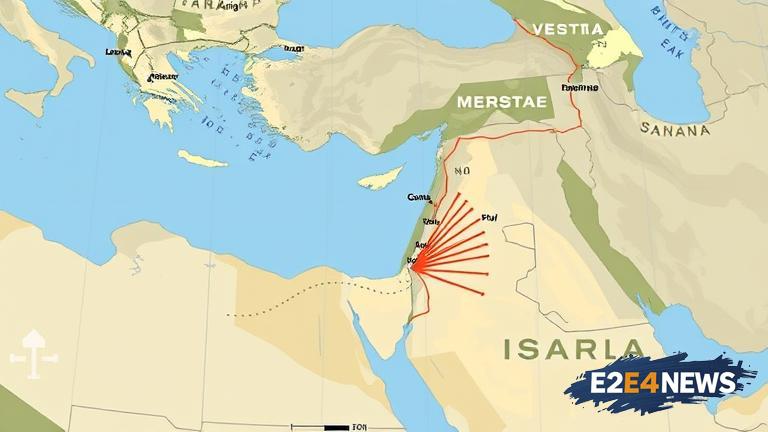Israel has unveiled its plan to reshape the Middle East, focusing on building strategic alliances and fostering economic cooperation with neighboring countries. The initiative aims to create a more stable and prosperous region, with Israel playing a key role in promoting peace and stability. The plan involves strengthening ties with countries such as the United Arab Emirates, Bahrain, and Sudan, which have recently normalized relations with Israel. Israel also seeks to enhance its relationships with other countries in the region, including Egypt, Jordan, and Turkey. The vision includes the development of joint economic projects, such as infrastructure development, trade agreements, and tourism initiatives. Israel hopes to leverage its technological expertise and innovative spirit to drive economic growth and create new opportunities for cooperation. The plan also emphasizes the importance of addressing regional challenges, such as terrorism, extremism, and climate change. Israel believes that by working together, the countries of the Middle East can overcome these challenges and create a brighter future for their citizens. The initiative has been welcomed by many countries in the region, which see it as an opportunity to promote peace, stability, and prosperity. However, some countries, such as Iran and Palestine, have expressed skepticism and concern about Israel’s intentions. Despite these challenges, Israel remains committed to its vision and is working to build a coalition of like-minded countries to support its efforts. The plan is seen as a significant shift in Israel’s foreign policy, which has traditionally focused on security and defense. The new approach prioritizes diplomacy and cooperation, recognizing that a stable and prosperous Middle East is essential for Israel’s own security and well-being. Israel’s vision for the Middle East is not limited to the region itself, but also has implications for global affairs. The country hopes to play a key role in promoting regional and global stability, and to contribute to the development of a more peaceful and prosperous world. The plan has been praised by many international leaders, who see it as a positive step towards promoting peace and stability in the region. However, some critics have expressed concern about the potential risks and challenges associated with the initiative, including the potential for conflict with countries that do not share Israel’s vision. Despite these risks, Israel remains committed to its plan and is working to build a brighter future for the Middle East and its people. The country’s vision for the region is based on a deep understanding of the complex challenges and opportunities that exist, and a recognition that cooperation and diplomacy are essential for promoting peace and stability. Israel’s plan is not a quick fix, but rather a long-term strategy that requires patience, persistence, and cooperation from all parties involved. The country is willing to take a leadership role in promoting its vision, but recognizes that success will depend on the support and cooperation of other countries in the region. In conclusion, Israel’s vision to reshape the Middle East is a bold and ambitious plan that has the potential to promote peace, stability, and prosperity in the region. While there are risks and challenges associated with the initiative, Israel remains committed to its vision and is working to build a coalition of like-minded countries to support its efforts.
